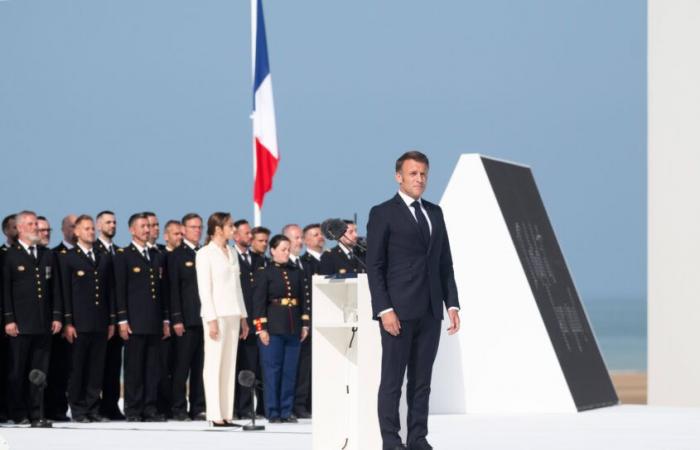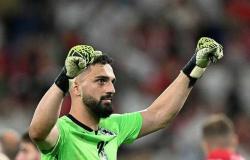
“Chief of the armed forces, for the President, it is an honorary title since it is the Prime Minister who holds the purse strings. Jordan has no intention of picking a fight with him, but he has set red lines. On Ukraine, the President will not be able to send troops,” declared Marine Le Pen in an interview with the Breton daily, Le Télégramme, on June 27. More broadly, the former candidate for the 2022 presidential election offers a reading of the Constitution and the powers of the President of the Republic, affirming in particular that the “Constitution is clear on everything”. Statements that made François Bayrou jump, affirming that Marine Le Pen was “profoundly calling into question the Constitution”. However, the Constitution introduces several ambiguities on the distribution of powers between the President of the Republic and the Prime Minister, particularly during periods of cohabitation. Several points could sow doubt on the interpretation of certain articles of the Constitution in the event of Jordan Bardella’s accession to Matignon.
“The title of head of the armed forces has always accompanied that of the head of state, but the Constitution gives it substance”
During the previous cohabitations, in 1986, 1993 and 1997, the arrival at Matignon of a government hostile to the President of the Republic led to a form of rebalancing of powers making the Prime Minister the only one able to determine and lead the policy of the Nation, in accordance with Article 20 of the Constitution. Furthermore, the tenant of the Elysée appoints the Prime Minister (Article 8) which allows him to dominate the executive outside of periods of cohabitation. “What Marine Le Pen says about the honorary role is both true and false, the title of head of the armed forces has always accompanied that of the head of state, even when his power was very weak as under the Third Republic. But this must be qualified to the extent that the Constitution gives substance to this formula, in particular through Article 15,” explains Bruno Daugeron, professor of public law at the University of Paris-Cité and author of a Manual of Constitutional Law at the Presses universitaires de France, in 2023. Article 15 of the Constitution provides, in fact, that the President of the Republic, in his capacity as head of the armed forces, chairs the councils and senior committees of national defense. A dimension underlined by the current Minister of Defense, Sébastien Lecornu, who recalls, by quoting Charles de Gaulle, that the President is the guarantor of the independence and integrity of the country. Furthermore, the Defense Code makes the President of the Republic the holder of nuclear fire.
“The honorific word is too radical, but the role of the President is not decisive”
If the title of head of the armed forces is not only honorary, the “reserved domain of the President of the Republic in matters of defense is very fabricated”, affirms Anne-Charlène Bezzina, lecturer in public law at the University of Rouen . “The word honorific is too radical, but the role of the President is not decisive. Article 15 is not mentioned by article 19 which lists the specific powers of the President of the Republic, that is to say those which do not require the signature of the Prime Minister. Assuming that the President of the Republic wanted to summon the army, the decree could not be countersigned,” explains Bruno Daugeron. In other words, the President of the Republic cannot be excluded from military decisions, but cannot decide alone.
Furthermore, articles 20 and 21 establish the Prime Minister as the holder of regulatory power, that is to say that he has the administration, but also the armed force. Finally, the government is responsible for informing Parliament in the event of intervention by the armed forces (article 35), leaving, in fact, significant room for maneuver to the executive power.
The practice of the Constitution, sole justice of the peace
The practice of the Constitution has nevertheless suggested a different balance on subjects linked to defense in particular because of the significant power of blocking and nuisance enjoyed by the President of the Republic. “The Constitution is designed in such a way that it provides for a synergy between the President of the Republic and the Prime Minister, in particular to resolve certain conflicts of interpretation,” explains Anne-Charlène Bezzina. During the first cohabitation, in 1986, the President at the time, François Mitterrand, refused to sign the orders of the Chirac government, causing a small constitutional crisis by interpreting the signing power of the President of the Republic. By adopting this interpretation, the President of the Republic could oppose the signing of decrees taken in the Council of Ministers and orders. “This can happen, it turns out that signing or refusing to sign is traditionally considered an act of government by the Council of State. The Council of State considers that these are political acts and therefore refuses to control them in law”, underlines Bruno Daugeron who recalls that “the President is the judge of his own competence in the matter, therefore he could not sign and not to be controlled.”
In a tweet, the senator and former deputy secretary general of the Elysée, Philippe Bas (LR), recalls that “Prime Ministers have always recognized the primacy of the President for the commitment of our soldiers”. Indeed, during the last cohabitations, Prime Ministers and President managed to jointly exercise these prerogatives, but nothing guarantees the repetition of this scenario. “The challenge will be to succeed in finding common ground on these subjects, there is a chance that we are at the dawn of great political inertia,” says Anne-Charlène Bezzina.





